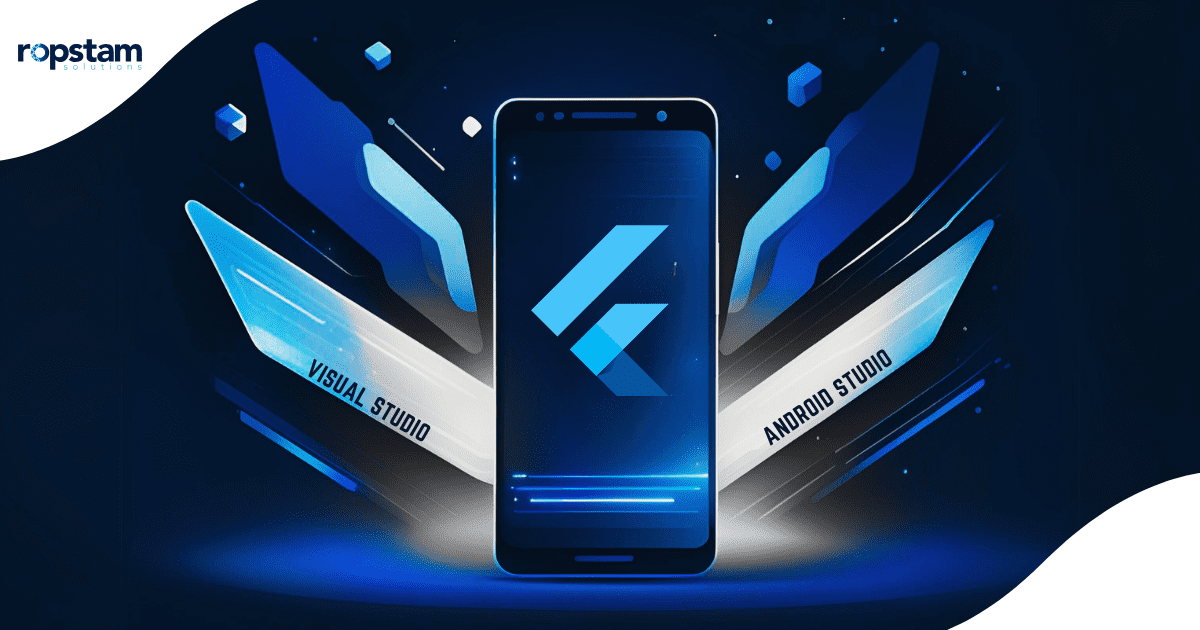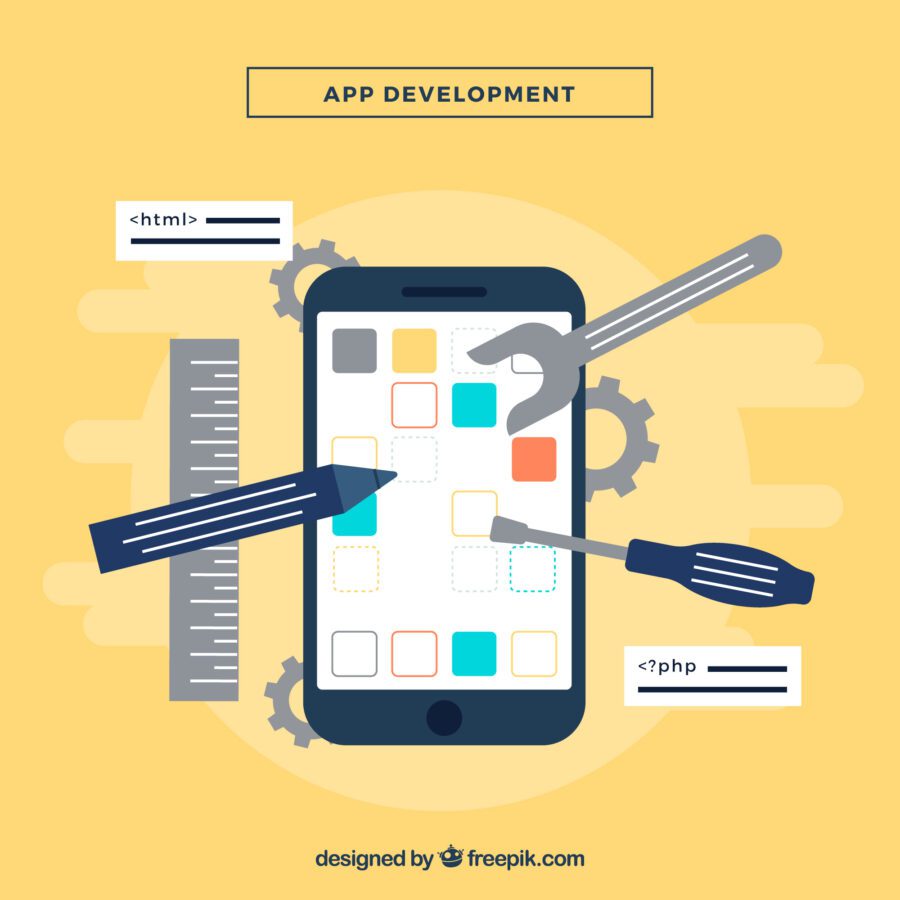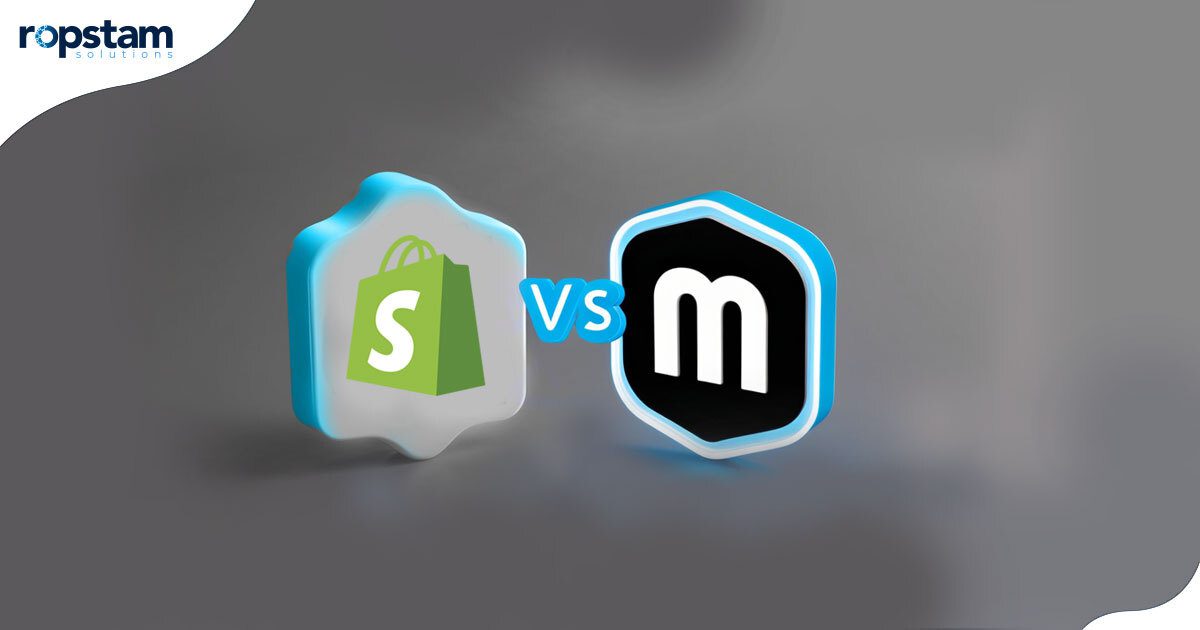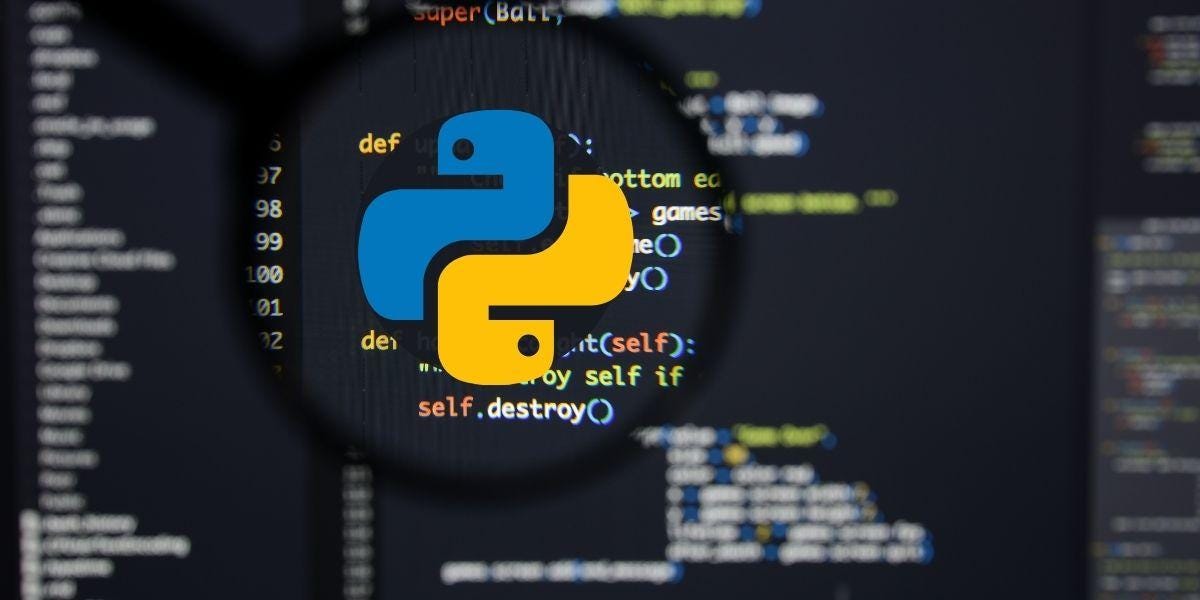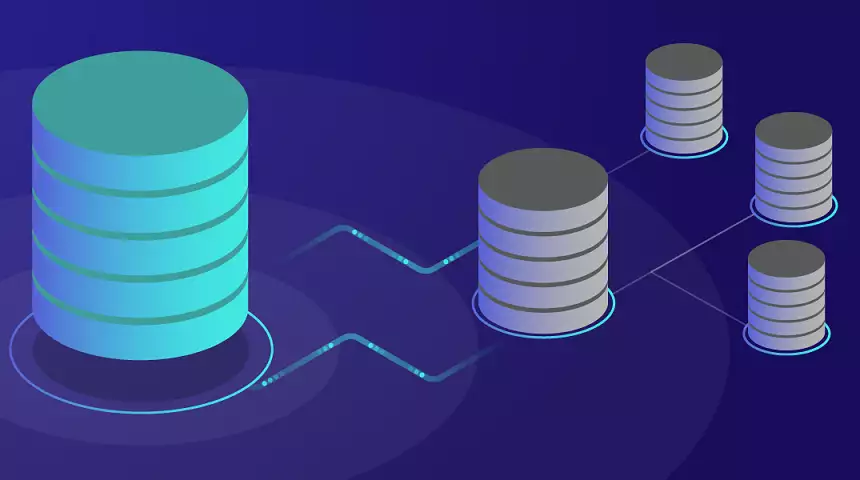The rise of Flutter has transformed how developers approach cross-platform app development. Backed by Google, Flutter provides a way to create Android, iOS, and other applications from a single codebase. However, when it comes to the right tools, choosing the ideal IDE can make a big difference in productivity and efficiency. The two most popular IDEs for Flutter are Visual Studio Code (VS Code) and Android Studio.
This blog post will compare these two IDEs based on their features, advantages and disadvantages, and the best use cases for Flutter app development.
What is Visual Code Studio
Visual Studio Code, commonly known as VS Code, is a powerful and open-source integrated development environment (IDE) created by Microsoft. While it is not explicitly designed for mobile app development, it has gained popularity among developers working on Flutter applications due to its flexibility, lightweight design, and extensive library of extensions. Many developers value VS Code for its simplicity and customizability, which make it a versatile tool suitable for various programming languages and frameworks.
Importance of VS Code
Visual Studio Code (VS Code) is an efficient IDE for Flutter app development. Built on the Electron framework, it offers lightweight performance while providing solid features like IntelliSense for intelligent code completion and comprehensive Git integration for version control. Supporting the Language Server Protocol (LSP), it improves code editing and debugging with breakpoints, call stacks, and an interactive console.
VS Code runs across Windows, macOS, and Linux, guaranteeing a consistent development experience. Its extensive extension marketplace, integrated terminal, task runner, and snippets simplify development tasks, boosting productivity. Remote development capabilities and Live Share support collaborative coding, making it easier for teams to work together. Essential plugins such as Dart and Flutter enable Flutter development in VS Code, making it suitable for beginners and experienced developers. VS Code is an excellent choice for those who prioritize speed and simplicity. While it does not come with many built-in tools, it can be customized through extensions to meet various needs.
Pros
- Lightweight: Unlike traditional IDEs, VS Code is lightweight and starts up quickly, making it ideal for developers who prefer a faster and more responsive environment.
- Extensibility: With a vast marketplace of extensions, VS Code can be customized to meet the specific needs of Flutter developers, including Flutter-specific plugins.
- Cross-Platform: VS Code runs on Windows, macOS, and Linux, providing a consistent experience across different operating systems.
- Integrated Terminal: The built-in terminal allows developers to run commands without leaving the editor, improving workflow efficiency.
- Active Community: A large and active community means continuous improvement, extensive resources, and support.
Cons
- Limited GUI Tools: VS Code lacks some of the advanced GUI-based tools and wizards found in more comprehensive IDEs like Android Studio.
- Requires Configuration: Although VS Code offers excellent customization, initial setup and configuration are needed to maximize its Flutter development features.
- Resource Management: Handling larger projects may sometimes lead to higher memory consumption, depending on the extensions used.
- No Built-in Emulator: You must install an external emulator or use a physical device for testing.
- Basic Debugging: Debugging tools aren’t as advanced as Android Studio’s.
What is Android Studio?
Android Studio is Google’s official IDE for Android development, built on IntelliJ IDEA. It’s a comprehensive tool designed specifically for building Android applications and offers built-in support for Flutter and Dart, making it popular among developers creating apps primarily for Android users. With powerful debugging tools, device emulators, and UI design resources, Android Studio provides a complete development environment for Android and Flutter developers.
Importance of Android Studio
Android Studio holds significant importance in Flutter app development as the official IDE for Android development, offering a comprehensive and robust set of tools tailored specifically for creating high-quality Android applications. Built on IntelliJ IDEA, it supports Flutter with advanced features like a rich code editor, layout editor, and powerful debugging tools. Its integrated emulator allows testing across various devices and configurations, guaranteeing thorough app validation. Android Studio’s extensive tooling, such as the Gradle build system and advanced profiling capabilities, simplifies the development process and improves productivity. With solid backing and regular updates from Google, Android Studio remains a reliable and up-to-date environment for Flutter developers, making it an essential choice for those focused on Android app development.
Pros
- Comprehensive Tools: Android Studio has a rich set of tools, including a powerful code editor, layout editor, and profilers, making it a robust choice for Flutter development.
- Advanced Debugging: It offers advanced debugging features, allowing developers to identify and resolve issues efficiently.
- Emulator Support: The built-in Android Emulator provides a convenient way to test Flutter apps on various devices and configurations.
- Official Support: As Google’s official IDE for Android development, Android Studio receives timely updates and support.
- Gradle Build System: The integrated Gradle build system automates and manages the build process, improving productivity.
Cons
- Resource-Intensive: Android Studio is known for its high resource consumption, which can slow down the system, especially on machines with limited hardware capabilities.
- Steep Learning Curve: The extensive feature set can be overwhelming for beginners, requiring a steeper learning curve.
- Slower Startup: Compared to VS Code, Android Studio has a slower startup time due to its comprehensive nature.
- Longer Setup and Load Times: Installation and configuration can be time-consuming.
Which IDE to Choose for Mobile App Development?
Both VS Code and Android Studio are solid choices for Flutter, offering distinct benefits. The decision ultimately depends on the type of project, the developer’s specific needs, and the development environment’s hardware capabilities. Here’s a breakdown of ideal scenarios for each:
When to Choose VS Code
- VS Code’s lightweight nature and faster setup are perfect for developers who want a quick, efficient workspace without additional overhead.
- VS Code’s extensive library of extensions allows you to customize the IDE to meet various development needs.
- If you’re working on a lower-spec machine, VS Code’s lower memory and CPU demands make it a more feasible option.
- VS Code’s language versatility makes it a good choice if you regularly switch between different programming languages.
When to Choose Android Studio
- If Android is your primary target, Android Studio’s integrated Android tools, emulator, and UI design capabilities make it an ideal choice.
- Android Studio’s debugging and profiling tools are far more advanced, giving you better insights into your app’s performance.
- For developers with high-performance machines, the comprehensive set of tools available in Android Studio can be utilized without significantly affecting performance.
- Android Studio’s features are designed for heavy-duty projects that require thorough testing, layout customization, and performance tracking.
Summary
Both VS Code and Android Studio are excellent choices for Flutter development, each with unique advantages and disadvantages. VS Code’s lightweight, extensible nature makes it ideal for developers who prefer a fast and flexible setup. On the other hand, Android Studio offers a strong and comprehensive environment with powerful tools explicitly customized for Android development.
The best choice ultimately depends on your needs, preferences, and available resources. Whether you opt for the speed and flexibility of VS Code or the comprehensive toolset of Android Studio, both IDEs will equip you with the necessary tools to build exceptional Flutter applications.

